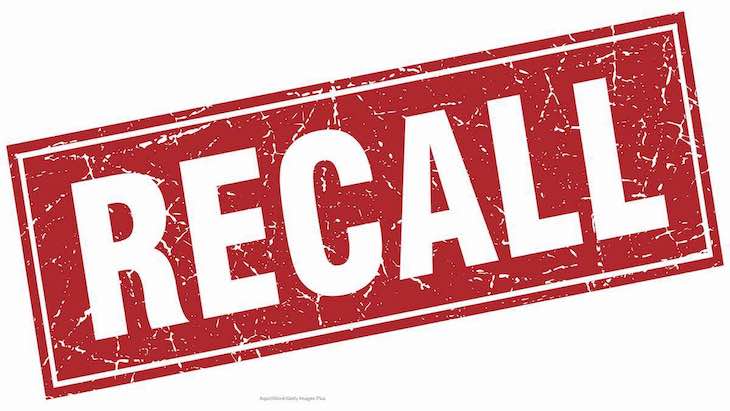What does the FDA want you to know about food recalls? Many food recalls are issued every month, from the FDA and the USDA, depending on which foods they regulate. The FDA regulates all foods except meat, poultry, and processed egg products.

Food recalls can be for undeclared allergens, for foreign material contamination, or for possible contamination with pathogens, which can include bacteria such as E. coli and Listeria monocytogenes, viruses such as norovirus or hepatitis A, or parasites such as cyclospora. All food that contains one of the nine major food allergens (sesame, milk, wheat, finfish, shellfish, tree nuts, peanuts, soy, and eggs) must list that ingredient on the label, as well as an allergen statement warning consumers that the product contains that ingredient.
Most recalls are voluntary, issued by the manufacturer, but the FDA can request a recall. If the company does not comply, the government can mandate a recall, through their authority issued by the Food Safety and Modernization Act of 2011.
Stay up to date by checking back with Food Poisoning Bulletin, or subscribe to the FDA and USDA for recall notices. If you have anyone in your family who is in a high risk group for serious complications from food poisoning, or anyone with serious food allergies, you need to stay on top of recall notices.
If you find you have purchased a recalled food, read the notice carefully and follow instructions. Do not give the product to food shelves or a food bank, or your pet. You can usually return the product to the place of purchase.
After you have discarded the food, if the recall was for pathogen contamination, you should wash your refrigerator, cutting boards, countertops, storage areas, and utensils that have come into contact with it. And wash your hands thoroughly with water and soap after cleaning and after handling the recalled item.
If you think you have been sickened by a recalled food, see your doctor and ask for a food poisoning test.




